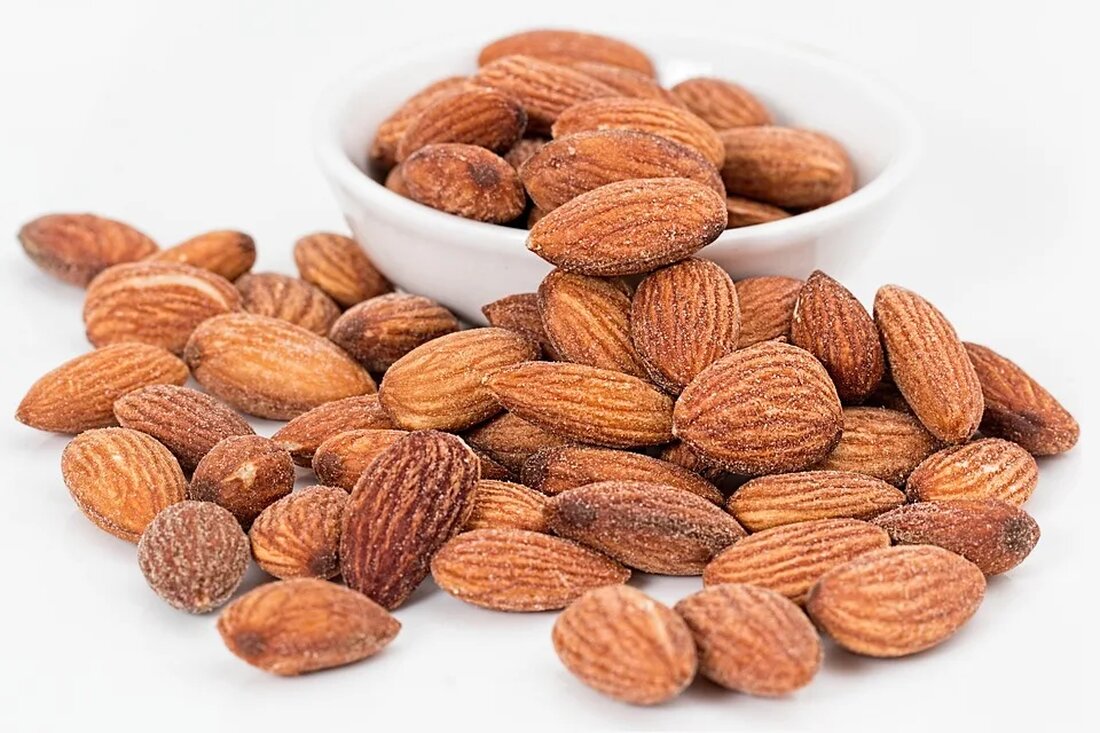Nuts and Seeds: Healthy Fats
Nuts and Seeds: Healthy Fats Nuts and seeds are not only delicious snacks, but also real powerhouses when it comes to nutrients. One of the most notable properties of nuts and seeds is their high content of healthy fats. In this article, we'll take a closer look at why these fats are so important and how they can be beneficial to your health. Distinguishing between healthy and unhealthy fats Not all fats are the same. Healthy fats, such as those found in nuts and seeds, are unsaturated fats, while unhealthy fats are saturated or trans fats. Unsaturated fats can be divided into monounsaturated fats and polyunsaturated fats...

Nuts and Seeds: Healthy Fats
Nuts and Seeds: Healthy Fats
Nuts and seeds are not only delicious snacks, but also real powerhouses when it comes to nutrients. One of the most notable properties of nuts and seeds is their high content of healthy fats. In this article, we'll take a closer look at why these fats are so important and how they can be beneficial to your health.
Differentiation between healthy and unhealthy fats
Not all fats are created equal. Healthy fats, such as those found in nuts and seeds, are unsaturated fats, while unhealthy fats are saturated or trans fats. Unsaturated fats can be divided into monounsaturated fats and polyunsaturated fats.
Saturated fats are mainly found in animal products such as meat and dairy products. This type of fat can raise cholesterol levels and increase the risk of heart disease and other health problems. Trans fats are produced through an industrial process that converts unsaturated fatty acids into saturated ones. This type of fat is also unhealthy and should be avoided.
On the other hand, unsaturated fats are extremely beneficial for the body. They can help lower cholesterol, reduce the risk of heart disease, and reduce inflammation in the body. Nuts and seeds mainly contain monounsaturated and polyunsaturated fats.
Monounsaturated fats in nuts and seeds
Nuts such as almonds, hazelnuts, cashews and macadamia nuts are rich in monounsaturated fatty acids. These fatty acids have been proven to have many benefits for our health. They can help lower cholesterol and reduce the risk of heart disease.
The monounsaturated fats in nuts and seeds are also rich in vitamin E, a powerful antioxidant. Antioxidants protect our cells from harmful free radicals and can help reduce inflammation in the body and reduce the risk of chronic diseases.
Polyunsaturated fats in nuts and seeds
Polyunsaturated fats are another type of healthy fat found in nuts and seeds. These fatty acids are divided into omega-3 and omega-6 fatty acids.
Omega-3 fatty acids are particularly known for having anti-inflammatory properties and supporting heart and brain health. Walnuts are an excellent source of omega-3 fatty acids. They can also be found in chia seeds and flax seeds.
Omega-6 fatty acids also have their benefits, but should be consumed in balance with omega-3 fatty acids. Sunflower seeds and pumpkin seeds are examples of seeds that are rich in omega-6 fatty acids.
How to incorporate nuts and seeds into your diet
Nuts and seeds are extremely versatile and can be incorporated into your diet in many different ways. Here are some ideas for incorporating more nuts and seeds into your meals:
- Füge gehackte Nüsse oder Samen zu deinem morgendlichen Müsli oder Joghurt hinzu.
- Streue Nüsse oder Samen über Salate oder Suppen, um ihnen eine zusätzliche Textur und Geschmack zu verleihen.
- Verwende gemahlene Nüsse oder Samen als Ersatz für Mehl bei der Zubereitung von Backwaren.
- Mahle Samen zu einer Paste, um eigene natürliche Nussbutter herzustellen.
- Verwende Nüsse oder Kerne als Topping für Smoothie-Schüsseln oder Desserts.
Remember that nuts and seeds are high in fat, so it's important to consider portion size and consume them in moderation. However, a handful of nuts or seeds per day can be a valuable addition to a balanced diet.
Summary
Nuts and seeds are not only delicious snacks, but also excellent sources of healthy fats. The unsaturated fatty acids in nuts and seeds can help lower cholesterol, reduce the risk of heart disease and reduce inflammation in the body. They are also rich in vitamin E and omega-3 and omega-6 fatty acids, which provide a range of health benefits. Incorporate more nuts and seeds into your diet to benefit from these valuable nutrients, but don't forget to consider portion size.
You can find out more about natural and healthy nutrition in our guide magazine Your-Heilpraktiker.com

 Suche
Suche
 Mein Konto
Mein Konto
